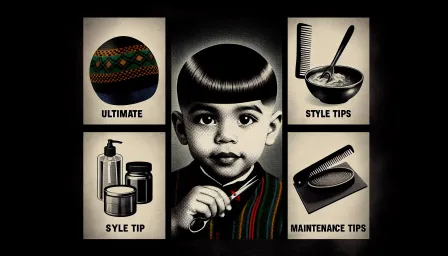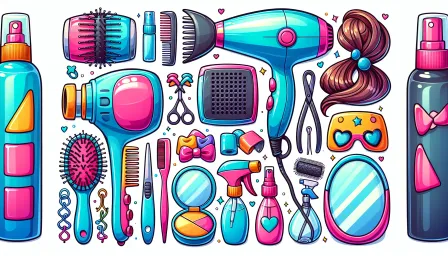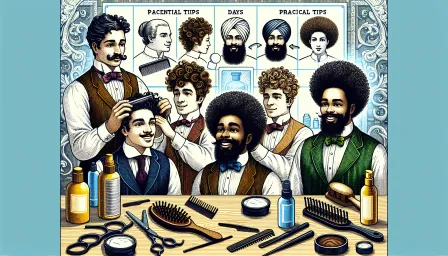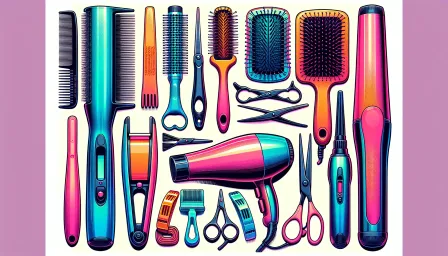Top 10 Thinning Hair Remedies for Women That Actually Work

Discover effective thinning hair remedies for women that can help promote hair growth and improve hair health. Expert tips and natural solutions included.
Experiencing thinning hair can be distressing for many women. Frustration mounts when nothing seems to work. Fortunately, numerous remedies backed by research can significantly improve hair density and health. This article explores the [top 10 thinning hair remedies for women] that provide effective solutions to this common problem.
1. Nutritional Supplements
One of the primary causes of thinning hair is nutritional deficiencies. Vitamins and minerals like Biotin, Vitamin D, Zinc, and Iron play critical roles in maintaining healthy hair. Consult your doctor to determine if you have any deficiencies and take appropriate supplements. Products like Nutrafol and Viviscal are often recommended and have shown promising results in clinical studies.
2. Minoxidil (Rogaine)
Minoxidil is an FDA-approved treatment for hair thinning and is suitable for women. This topical solution works by improving blood circulation to the hair follicles, promoting growth and increasing hair thickness. Consistent use is necessary for noticeable results, often within 3 to 6 months. Always follow the instructions and consult a healthcare professional if you have any concerns.
3. Essential Oils
Essential oils like Rosemary, Peppermint, and Lavender have been shown to improve hair growth and reduce thinning. Mixing a few drops of these oils with a carrier oil like Jojoba or Coconut oil and massaging into the scalp can stimulate hair follicles. Studies indicate that regular use can improve hair density and health.
4. Scalp Massage
Regular scalp massages can increase blood flow to the hair follicles, promoting growth and thickness. Use your fingertips to gently massage your scalp in circular motions for about 5-10 minutes daily. This simple routine can make a significant difference over time.
5. Laser Therapy
Low-level laser therapy (LLLT) is a non-invasive treatment that uses light energy to stimulate hair follicles. Devices like laser combs or helmets are available for home use. Multiple studies support the efficacy of LLLT in improving hair density for women experiencing thinning hair.
6. Platelet-Rich Plasma (PRP) Therapy
PRP therapy involves drawing a small amount of your blood, processing it to concentrate the platelets, and then injecting it into your scalp. These platelets release growth factors that can rejuvenate hair follicles. PRP has gained popularity and has shown promising results in clinical settings for hair restoration.
7. Herbal Remedies
Various herbs have been traditionally used to combat hair thinning. Saw Palmetto, Ginseng, and Aloe Vera are popular choices known for their ability to block hormones linked to hair loss and promote growth. Incorporating these herbs into your diet or using them as topical treatments can help improve hair health.
8. Balanced Diet
A balanced diet rich in proteins, healthy fats, and essential vitamins plays a critical role in maintaining healthy hair. Foods like eggs, spinach, nuts, and fish are excellent choices. Staying hydrated and avoiding excessive caffeine and alcohol can also positively impact hair health.
9. Avoiding Heat and Harsh Chemicals
Excessive use of heat styling tools like straighteners and curlers can damage hair, contributing to thinning. Similarly, harsh chemical treatments like coloring, perms, and relaxers can weaken hair strands. Limiting these practices and using protective products can prevent further damage.
10. Stress Management
Stress can significantly impact hair health, leading to increased thinning and loss. Practices like yoga, meditation, and regular exercise can help manage stress levels. Adequate sleep is equally important, as the body's repair processes, including hair growth, occur during rest.
Conclusion
Thinning hair in women can be a challenging issue, but these effective remedies offer promising solutions. From nutritional supplements and topical treatments to lifestyle changes and professional therapies, implementing these strategies can significantly improve hair health. Always consult with healthcare professionals to tailor a treatment plan that is best suited for your individual needs.



























